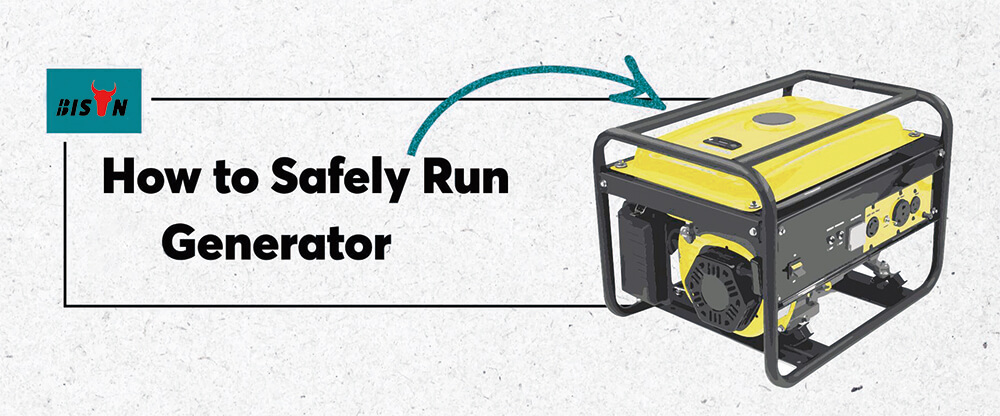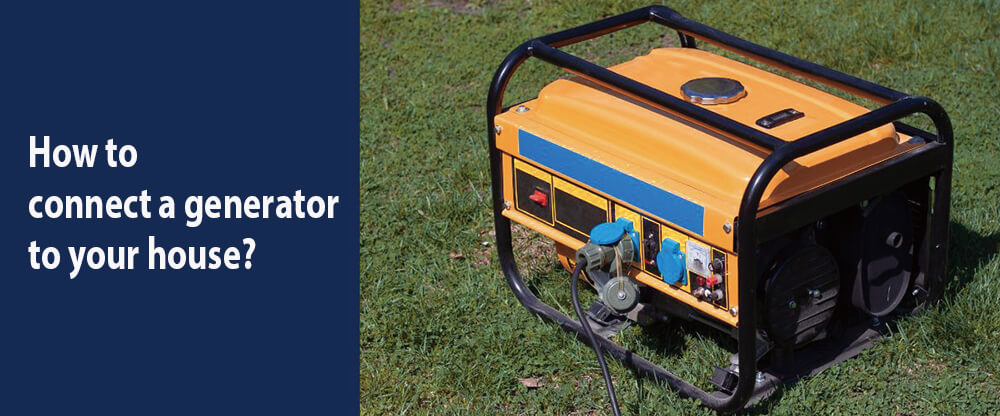24Feb 2023
table of contents

A generator is a useful tool whether you use it at home, professionally in a business setting, or just for leisure at the campsite. But it's worth keeping in mind that every engine-powered machine has hazards in its operation. The BISON safety guide is designed to give you a quick overview of the main safety issues when using generators, and how to minimize the risks of using generators.
Carbon monoxide emissions and the risk of CO poisoning. By far the most serious danger of using a generator is carbon monoxide poisoning. Like many engine-driven machines, generators can produce large amounts of carbon monoxide quickly. People die every year from carbon monoxide poisoning caused by incorrect use of generators.
Electric shock hazard and possibility of electric shock. If your generator is damaged or used improperly, the power output can go where it shouldn't, potentially injuring you or those around you.
Fire and explosion hazard.
One of the most important aspects of safely operating any type of generator is choosing one that will provide the proper amount of power to power all the necessities. If you don't, you risk overloading the generator when you plug in too many devices and exceed the total running power the machine can support. For example, the BISON 5kw generator can withstand a maximum power of 5.5kw, but there is an overload of 6kw.
This is very dangerous as it can cause overheating or generator failure. This may damage the equipment and/or cause a fire. If your generator is connected to a circuit breaker, it may respond shutting down, but there is no guarantee.
Instead, the best way to better protect yourself and your family by avoiding overloading is to know exactly how much wattage you need, and you can click to consult a BISON generator supplier for help. Then purchase a generator that fits your needs. It is very dangerous to run a generator in an enclosed space, such as a home, garage or shed.
Never use a generator in an enclosed or partially enclosed space (e.g., home, garage, cellar, shed, cabin, tent). Even partially open ventilation areas can accumulate carbon dioxide, and opening doors and windows or using fans does not eliminate the risk.
It is dangerous to operate a generator in rain, snow or wet conditions. This is because generators generate strong voltages, which can increase the risk of electric shock or, in bad weather, a possible explosion. Avoid moisture and operate the BISON generator on a dry surface. Use a shield if you can. Dry your hands before operating the generator.
Another option? To be on the safe side, you can forego using the generator entirely and wait until the weather improves to set up the generator and get it up and running again.

How to connect a generator to your house? Think of the transfer switch as a buffer between the generator and the house, and use properly rated cables and extension cords, check the entire power cord for cuts or tears, and all three pronged plugs, especially the ground prong . Never attempt to back feed a BISON generator, back feeding means attempting to power your home's lines by plugging the generator into a wall outlet puts utility workers, electric shock can endanger your neighbors and family. Professional operation is required.
In the wrong circumstances, even a small leak can lead to a larger problem, such as a fire or explosion. If a leak occurs, remove all fuel immediately.
Before refilling a depleted generator box, make sure the entire generator has a chance to cool down. Turn it off and leave for at least an hour. Fuel splashed on a hot engine can catch fire.
Don't worry if you're new to fueling a generator. Most owner manuals, such as BISON generators, provide step-by-step instructions to help you figure out what to do, or you can contact the generator supplier directly and let an expert guide you through the process.
You never know what's going to happen, especially in an emergency. One of the most prudent things you can do ahead of time is to store extra gasoline, propane, and/or diesel fuel in an approved safety tank (whichever your generator uses) for emergencies. As a general practice, it is wise to allow approximately 48 hours. However, in order to prevent accidental fire, it should not be stored at home. Keep flammable fuels in properly labeled safe containers away from living spaces.
Open fuel can easily catch fire, and even a small leak can lead to bigger problems. If a spill occurs, remove all fuel immediately.
BISON does not recommend the use of gasoline generators on boats. Gasoline spills or leaks can cause vapor to accumulate in the hull. Even the slightest spark, such as flicking a light switch, can ignite gasoline vapors and cause an explosion.
Regular maintenance checks are the best way to ensure your generator is running when you need it. Common maintenance tasks include filling the tank with fuel, changing oil and filters, checking for loose or corroded connections, and checking for leaks. You should also run the engine for at least 30 minutes to ensure it is working properly. If a problem is found, a generator professional should be contacted immediately. Prompt handling of any required repairs will prevent minor issues from developing into major problems.
Knowing how to use generators safely is important to your company's success. To learn more, please contact the knowledgeable staff at BISON generators. We are proud to provide power solutions to importing companies from all over the world.
inquiry form here
BISON BLOG, All the latest news and views from Bison Machinery.